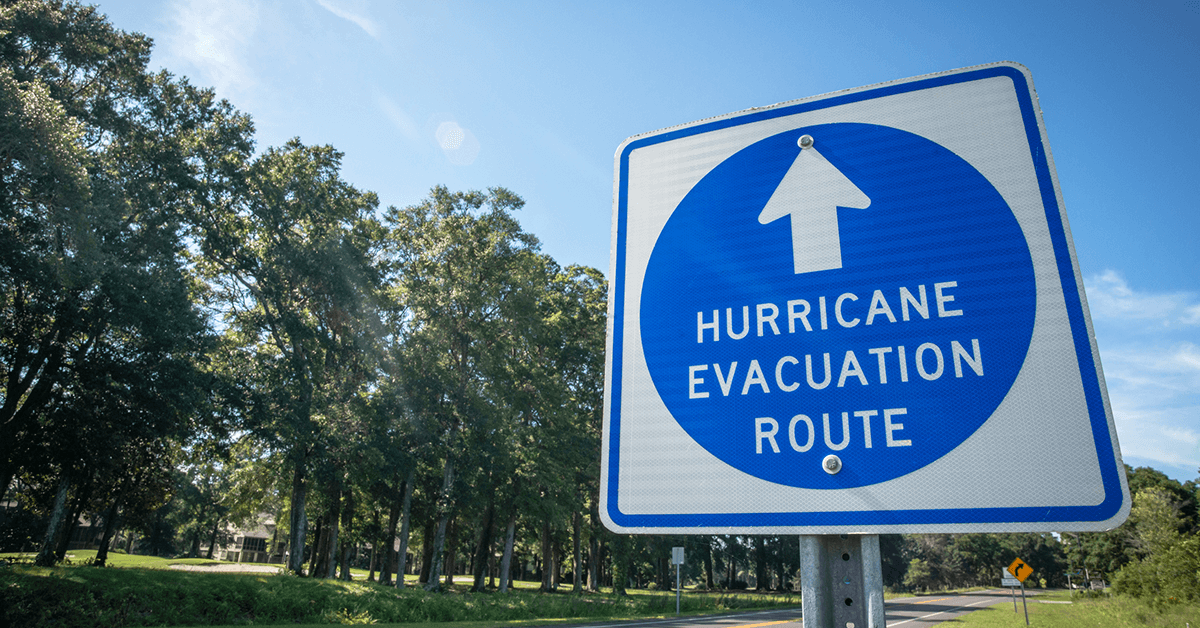
It’s Time For Louisiana Homeowners Prepare for Hurricane Season
The transition from spring to summer along the Southern Atlantic coast is rarely a smooth one. Atlantic Ocean temperatures rise through May and into June triggering the start of The Atlantic Hurricane Season.
CNN meteorologist Chad Myers said in a recent CNN Weather article, “With ocean temperatures above normal most of the year, the middle of May will likely become the new start of tropical storm season.” Louisiana, which ranks as number four for most hurricanes between 1851 and 2018, is gearing up for another predicted active hurricane season.
With the current pandemic, and a hurricane season that has been trending earlier than June over the past five years, there is no time like the present to start thinking about how you plan to protect yourself and your home this time around.
Creating an evacuation plan is an essential part of any hurricane season. But given the unique circumstances surrounding COVID-19, and the effect on the country’s infrastructure, you’d be wise to revisit some key points.
- Know which evacuation phase you live in: The coastal region of Louisiana is divided into three evacuation phases for traffic management purposes. The closer you live to shore, the sooner you will be asked to evacuate with the final phase, in normal times, beginning 30 hours before the onset of tropical winds. However, in Jefferson Parish, Emergency Management Director Joe Valiente noted that due to COVID-19, evacuation decisions will need to be made 10-14 hours sooner than usual to account for additional screening and social distancing requirements.
- Plan your route: If you plan to evacuate to a more inland hotel or motel, checking whether or not a particular location is operational is imperative during COVID-19 when many locations, struggling to make ends meet, have closed. Also be aware that during Phase III of an evacuation, certain routes will be directed and the Contraflow Plan will be implemented.
- Understand your town’s emergency plan: During a typical large-scale evacuation, emergency managers use buses, boarded at Evacuspots, to move people out of harm’s way and they convert schools into shelters. But, given the social distancing protocol related to COVID-19, “We are not going to posture the same way,” Gov. John Bel Edwards told WWL. “For example, to shelter the same number of people, we are going to have to have multiple shelters, so we can practice social distancing.” During this hurricane season in particular, it will be especially important to know and understand your Parish’s specific plan for evacuation. Some Parishes are adding additional restrictions and steps to screen for COVID-19 during the process.
Preparing your home physically for hurricane season is important, but just as important is preparing your insurance policies to accurately reflect your home’s value and to properly cover the potential damage that typically comes along with a hurricane.
- Don’t forget flood and windstorm insurance: Standard homeowners’ insurance does not cover flood damage, which is different from water damage due to a burst pipe or leaky shower. When you consider that the potential cost of damage from just one inch of water is $20,000, flood insurance is a smart investment for anyone, especially those living in flood-prone areas. It is typical for flood insurance policies to take up to 30 days to become effective, so waiting until the storm is on the horizon is not a smart choice.
Similar to flood insurance, most standard homeowners insurance policies do not specifically cover wind damage caused by hurricanes. You should contact your insurance company to find out the specifics of your policy.
- Gather your documents: Information such as policy numbers, emergency contact information, bank documents, lists of household items, and more should be gathered and stored in a waterproof container, or on the Cloud or similar internet-based storage network. The Louisiana Emergency Preparedness Guide has an extensive list of important documents to gather.
- Prepare your home: This is a great time to perform a check of the exterior of your home and remove any loose tree limbs, check for unsecured items, and ensure that your windows and doors are watertight. You may want to also consider installing hurricane shutters if your home doesn’t already have them.
Inside your home, you can prepare by creating an emergency kit containing essential food, water, and supplies to last at least three days. However, a Forbes article notes, “Supply chains, already stressed, will be hard-pressed to handle the double-tap of potential port disruptions coupled with a sudden localized uptick in demand for everything from batteries and blue tarps to beer and building materials.” So, stocking up beyond the typical three-day recommendation is advisable.
During hurricane season, and all year long, you can sign up to receive weather and other emergency alerts through a variety of national and local apps and notification initiatives.
- FEMA App: This app, available for Apple and Android, provides users with weather alerts for up to five locations, provides emergency safety tips, and helps you find emergency shelters and disaster recovery centers in your area.
- AlertFM: This FM radio-based notification system allows Louisiana officials to provide citizens with essential information during natural or man-made disasters. Emergency managers from all 64 Parishes use the system.
- National Weather Service: On this website, you’ll find a round-up of apps, websites, and services along with descriptions of services and price for the service (when applicable) in an easy to read chart.
Mother nature won’t change her plans because we’re dealing with a global pandemic. While preparation is always best at the onset of hurricane season, planning ahead, thoroughly prepping, and staying informed are the best ways to ensure the safety of you and your home.
Time to Focus on Affordable Housing
Taxes on real estate are not the answer. Sign the petition calling on Congress to address our country’s housing shortage.





